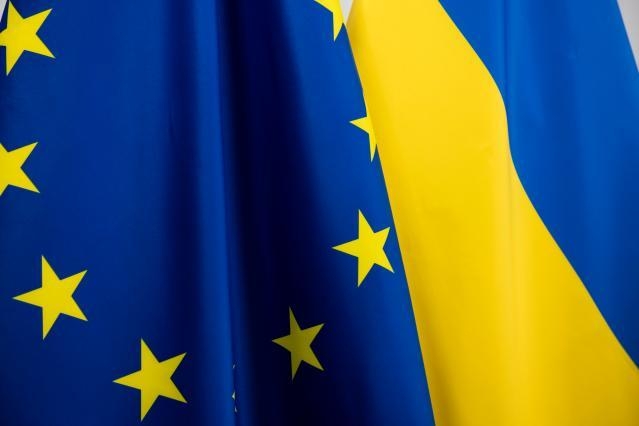 László Andor is a Hungarian economist, and former EU Commissioner for Employment, Social Affairs and Inclusion (2010-2014). Since stepping down from the Commission, he has been head of department of economic policy at Corvinus University (Budapest), Senior Fellow at Hertie School of Governance (Berlin) and a visiting professor at ULB (Brussels) as well as Sciences Po (Paris). He is the Secretary General of FEPS.
László Andor is a Hungarian economist, and former EU Commissioner for Employment, Social Affairs and Inclusion (2010-2014). Since stepping down from the Commission, he has been head of department of economic policy at Corvinus University (Budapest), Senior Fellow at Hertie School of Governance (Berlin) and a visiting professor at ULB (Brussels) as well as Sciences Po (Paris). He is the Secretary General of FEPS.
This is about the ride that never happened, despite reportedly being offered to President Volodymyr Zelensky by American officials, at the moment of Russia launching the aggression against Ukraine from North, East and South. Most likely, the ride was prepared to move him quickly to Lviv, the formerly Austro-Hungarian and Polish city close to the Western border of Ukraine to which various embassies, including the US one, relocated in the last week of February. Zelensky’s famous reply (“I need ammunition, not a ride”) became the most popular aphorism born in this war, exhibiting the determination of Ukrainian people to defend the independence of their country, even if it takes a high cost and requires practically limitless material support from the West.
Because Zelensky did not leave Kyiv, calling the whole nation into arms went quickly. The President leading the fight for independence from the surrounded capital city helped forging national unity, including those for whom Russian is the first language (living mainly in the East and the South). Having seen resolve, leadership and unity, various commentators concluded that Ukraine has already won the war. Or at least it is bound to.
There is less specific reportage about the Russian plans for Zelensky following the onset of the invasion, but the stories about the plans to kidnap him should bear credibility. Therefore, it can be claimed with confidence that neither Joe Biden, nor Vladimir Putin wanted Zelensky to stay in Kyiv for the time of the war. Since the Americans were ahead of many others to detect the Russian plans for the invasion, the offer to transfer the President to Lviv was most certainly not improvised. The US officials could have advised Zelensky to negotiate with Russia about neutrality, but they preferred to prepare the ride, and with that the ride scenario as well.
Analysts agree that the head of state leaving behind the capital under invasion would have resulted in a drop in morale among the the armed forces but also civilians, a lack of uniform political leadership for the nation, and a weak capacity to drum up international support for the struggle for independence. Mounting effective resistance against the invasion, even if that was a cack-handed, at least at the beginning, would have been much more difficult. Kyiv would have fallen; and perhaps not in a few days, but in a few weeks Russia could have taken control of the central, the Eastern and Southern parts of Ukraine, installing a puppet government. The national government, having relocated to Lviv, with a sufficient concentration of the armed forces, could have preserved control over about eight counties in the Western stretch of Ukraine.
There would have been absolutely no chance to recognise such territorial gains of Russia in a peace treaty, not even with a puppet government being in the picture. There could have been armistice at some point, but the conflict would have been frozen for a shorter or longer time. The Russian army would have committed less atrocities, but this would not have saved Russia from much of the Ukrainian population turning against Moscow even more than before, and perhaps also some form of anti-Putin sentiment to rise and spread within Russia itself, contrary to the general assumption that a military victory always makes the incumbent more popular.
What concerns the Western reactions to the ride scenario, there would have been no rerun of 2014. Following the Euromaidan protest and the subsequent emigration of the elected Ukrainian President Viktor Yanukovych, West Europeans brokered the Minsk agreements, but also introduced sanctions in response to the Russian annexation of Crimea. True, it was not implemented by either side, but Minsk Two in 2015 was at least signed by both Ukraine and Russia, alongside the two separatist regions in the East and OSCE (thanks to the leaders of Germany and France). In case of a withdrawal of the national government to Lviv and controlling only the West, there would be nothing for the Ukraine to sign, beyond ceasefire, as long as neither side would see much perspective beyond an increasingly costly war of attricion.
The ride scenario could have created a North and South Korea, or Turkey vs Cyprus type of situation, with only about 20% territory remaining under the control of the national government. There would have been much less destruction than in weeks (or months) of war, but the frozen conflict with the great majority of Ukrainian territory under de facto Russian control would have been sufficient for the US to impose the sanctions regime on Russia. Even without apparent cases of genocide, Russia would have been condemned beyond precedent, despised, excommunicated and isolated in many ways.
After the shift to the sanctions regime, whose main function is to cut off Germany from the Russian markets and resouces for the long-term, the ride scenario would have allowed the US to continue refocusing on Asia, where the other main surplus country of the world economy, China, is currently benefiting from the divided attention of the US. Since, however, the war rages on, and Ukraine only has a chance to win it if Western financial and military aid flows seamlessly, the agitation for deliveries of heavy waponry continues. Fearing escalation (i.e. direct involvement of NATO countries), demands for no-fly-zone have been pushed back. But it remains true that throught the speed, volumes and composition of weapons deliveries to Ukraine, it is now the more or less united West which regulates the outcome of the war.
While the US re-emerged as a leader of the united West (proving that “America is back” after the Afghan debacle), the continuation of the war, as opposed to a hypothetical frozen conflict, became a difficulty for Joe Biden. His ratings are not improving, because while the fights are ongoing, and the Ukrainian government is demanding more support (heavy weaponry in particular), Biden appears to be soft, despite the US had insisted on a tough line ahead of the invasion by propagating a legalistic approach to NATO accession, and advising Ukraine aginst negotiating about it with the Russians.
Ending the war depends on limits of Ukrainian readiness to accept further human sacrifice and the West’s inclination to deliver more heavy weaponry. Therefore it is easier to discuss not when the war ends but what scenarios are possible. The most likely outcome is the restoration of the pre-aggression situation combined with some form of constructive neutrality and a credible reparation and reconstruction program attached. Politically, this would already be a much better outcome for Ukraine than the ride scenario with the national government compressed to Western Ukraine for an indefinite time.
There are on the other hand two further scenarios beyond. With complete victory over Russia (at the expense of immense human sacrifice on both sides), Ukraine could restore full integrity of its territory (including Donbas and perhaps somehow Crimea too), with the international community putting Russia behind a new Iron Curtain. For more hawkish commentators in America, this might already represent just a moderate ambition, as opposed to organising an economic regime change in Russia, with an aim to turn the extractive industries into subsidiaries of transnational companies from the free and democratic world. The all-out economic warfare launched against Russian big business („oligarchs”), which has no direct connection with the developments in the military theatre, points towards such maximalists scenario being kept within the range of possibilities.
For the European Union, the war in Ukraine means the end of neighbourhood policy in the East. It also represents a mortal threat to the still infantile strategic autonomy, in as much as the role of EU countries is being restricted to delivering aid to Ukraine, providing support to refugees, preparing to cover the costs of reconstruction and to some extent also taking the blame for a war which in reality they did not instigate. Europeans will likely have to foot the bill while the prosperity of their economy and society undermined by the unfolding economic warfare. Contrary to Zelensky, it is hard to see how Europe can now avoid being taken for a ride.
To read more articles, click here.
Image credit: European Commission




